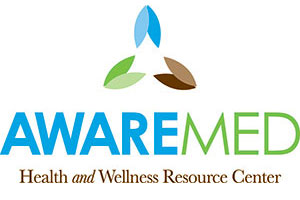Antiphospholipid Syndrome Treatment in Bristol, VA

Do you have blood clots in your legs or lungs? Have you experienced a stroke or multiple miscarriages? You may have antiphospholipid antibody syndrome (APS), also known as Hughes syndrome.
This condition causes your immune system to attack your normal blood proteins, resulting in blood clots, stroke, pregnancy complications, and other potentially dangerous symptoms. According to the APS Foundation of America, about 1-5 % of the general population has APS. It is one of the leading causes of miscarriages and complications in pregnancy when any other cause cannot be identified.
If you have these symptoms, speak with an antiphospholipid specialist in Bristol today to diagnose or rule out this serious medical condition. Call (423) 482-8711 or contact Dr. Dalal Akoury online.
What Causes Antiphospholipid Syndrome?
Antiphospholipid syndrome occurs when your body mistakenly produces antibodies that attack phospholipids, a type of fat that enables clotting. APS makes your blood clot abnormally.
Many factors can influence your likelihood of getting antiphospholipid syndrome, such as:
- being female
- having autoimmune conditions like systemic lupus or Sjogren's syndrome
- taking certain blood pressure medications (hydralazine), heart rhythm regulating medications (quinidine), anti-seizure medications (phenytoin), and the antibiotic amoxicillin
- having a family member with Hughes syndrome
Having antiphospholipid antibodies - even without showing symptoms - can increase your chance of developing blood clots. Risk factors include:
- getting pregnant
- remaining immobile for a long time, such as on a long flight or during bed rest
- having surgery
- smoking tobacco
- taking oral birth control or estrogen therapy for menopause
- having high cholesterol and triglycerides
What Are the Symptoms of Antiphospholipid Syndrome?
Of the wide variety of symptoms this condition may present, some of the most common include:
- deep vein thrombosis (DVT): these blood clots commonly occur in your legs and can travel to your lungs and cause a pulmonary embolism (a potentially life-threatening medical emergency)
- multiple miscarriages or stillbirths
- stroke: can occur even in young people without other cardiovascular disease risk factors
- transitory ischemic attack (TIA): similar to a stroke, but typically only lasts a few minutes and usually doesn't cause permanent damage
- Hughes syndrome rash or livedo reticularis: a red rash with a netlike pattern
Less common symptoms include:
- chronic headaches, migraines , dementia, and seizures: may occur if a blood clot blocks blood flow to certain parts of your brain
- cardiovascular disease: blood clots may damage your heart valves
- bleeding: a very low platelet count may cause bleeding from your nose, gums, or skin, the later causing small red patches (petechiae)
If you have an autoimmune disorder , seek emergency medical help if you experience:
- pain, swelling, redness, or tenderness in your leg or arm
- shortness of breath or chest pain
- leg swelling and pain
- abdominal pain
- unusual bleeding from your nose or gums, unusually heavy period, vomit that's bright red or resembles coffee grounds, or black or tarry fecal matter
If you're currently pregnant and show symptoms like vaginal spotting or bleeding, seek medical help immediately; these may be a sign of miscarriage or other serious pregnancy problems.
What Are Complications of Antiphospholipid Syndrome?
The organ affected, the obstruction's severity, and the existence of a blood clot all determine the degree of damage APS inflicts. Complications include:
- kidney failure: resulting from decreased blood flow to your kidneys
- stroke: caused by decreased blood flow to your brain, a stroke may result in permanent neurological damage like paralysis or speech loss
- cardiovascular problems: blood clots can damage your veins carrying blood to your heart, causing chronic swelling and discoloration in your lower legs and heart damage
- lung damage: you may experience high lung blood pressure (pulmonary hypertension) and pulmonary embolism
- pregnancy complications: miscarriage, stillbirth, premature birth, slow fetal growth, and high pregnancy blood pressure (preeclampsia)
In uncommon cases, repeated blood clots develop within a short time. This typically causes progressive damage in multiple organs (catastrophic antiphospholipid syndrome). In severe or untreated cases, this condition can cause permanent organ damage or death.
How is Antiphospholipid Syndrome Diagnosed?
Typically, your healthcare provider will perform blood tests for APS if you experience multiple thrombosis or pregnancy complications like miscarriages that have not been explained by other medical conditions.
Blood tests will check for abnormal clotting events and the presence of phospholipid antibodies. Two separate blood tests will be performed; if these antibodies appear in your blood sample twice in tests conducted 12 weeks apart, a positive diagnosis will be made.
How is Antiphospholipid Syndrome Treated?
Usual treatment for APS involves several different approaches, including blood thinning medications and lifestyle adjustments. If you have antiphospholipid syndrome and wish to get pregnant, talk to your healthcare provider about what treatments are available to help you during your pregnancy.
Blood Thinning Medications
Anticoagulants reduce your blood's clotting ability and can prevent APS complications.
You will first begin with heparin. When using this drug, you'll first be given an injection of this blood thinner combined with another blood thinner in pill form, typically warfarin. Heparin is also prescribed during pregnancy and will not affect your unborn fetus.
The most common side effect of these medications is bleeding: bleeding gums, nosebleeds, bloody stools, blood in the urine, coughing up blood, and gangrene. Patients have also reported burning, itching, numbness, or tingling. Because these medications increase risk of bleeding complications, your healthcare provider will monitor your dosage with blood tests. For patients with catastrophic antiphospholipid syndrome (present in 1% of all APS patients), treatments include anticoagulation and corticosteroids with plasma exchange or intravenous immunoglobulin.
Certain foods rich in vitamin K can lessen warfarin's effectiveness, so you'll be advised to carefully limit your intake of avocado, broccoli, brussels sprouts, cabbage, garbanzo beans, garlic, ginkgo, and green tea. Certain foods like cranberries and alcohol can intensify warfarin's blood thinning effect. Over-the-counter painkillers, cold and stomach medicines, and multivitamins should be avoided when taking warfarin. Some patients benefit from daily aspirin; aspirin is also given during pregnancy to increase your chances of avoiding miscarriage or stillbirth.
Ask your primary physician to give you a full list of what to avoid when taking warfarin.
Nutritional and Supplement Treatment
According to the APS Foundation of America certain herbs and supplements may be able to prevent blood clotting, though they should not be taken alongside blood-thinning pharmaceuticals. These treatments can be tried as a first response, or as a way to prevent reoccurring symptoms after pharmaceutical treatment:
- Policosanol: made from the waxy coating of sugar cane that helps lower cholesterol, and studies suggest inhibits platelet aggregation caused by collagen and arachidonic acid; avoid if pregnant or breastfeeding
- Pycnogenol: a water extract of the bark of the French maritime pine tree (Pinus pinaster), which contains several bioflavonoids that studies have shown may reduce platelet aggregation in smokers, decrease the number of thrombotic events, and reduce edema (swelling); not ideal for diabetics; research is ongoing
- garlic: studies have indicated that anticoagulant properties in aged garlic inhibit blood platelet adherence and aggregation and act as an anti-inflammatory agent and relaxes the muscles surrounding the blood vessels, allowing blood to flow more freely and preventing clot formation
- curcumin: found in turmeric, known for blood thinning properties; prevents platelets from clumping together
- vitamin E: carrots, spinach, and walnuts, avocados, and olives are rich in vitamin E which can help reduce risk of venous thromboembolism
Reserve Your Appointment Now
Blood clots and pregnancy complications can become serious conditions. If you suspect you have the symptoms of antiphospholipid syndrome, speak with an antiphospholipid syndrome specialist in Bristol immediately by calling (423) 482-8711 or contact Dr. Dalal Akoury online.
AWAREmed Health and Wellness Resource Center
Address
1604 Lamons LaneSuite 202
Johnson City, TN 37604
(423) 482-8711
www.awaremed.com
Hours
Mon:
9:00 am - 5:00 pm
Tue:
9:00 am - 5:00 pm
Wed:
9:00 am - 5:00 pm
Thu:
9:00 am - 5:00 pm
Fri:
9:00 am - 5:00 pm


